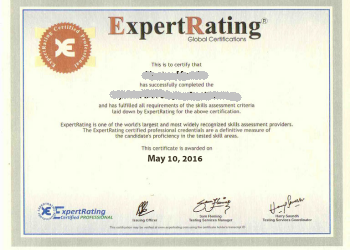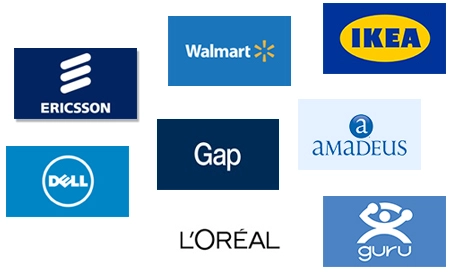Overview of Manufacturing
This lesson will define manufacturing—looking at its history, identifying the various types of industries, and discussing different types of products. You'll survey the critical areas of design, materials, processes, technology, and systems. Then, you'll finish up by examining manufacturing capability, trends in the field, and manufacturing careers.
Production Design and Planning
Production design is a critical activity for any manufacturing firm because it plays a major role in defining overall costs. Once a production design is set, it charts the course for a product. Even the most expensive equipment and the best engineers can't offset the limitations of a production design. In this lesson, you'll examine the elements of production design and process planning. Then, you'll explore the vast number of processing types including metal casting, bulk deformation, sheet metal forming, material removing, polymer and plastic processing, rubber production, glass manufacturing, powder processing, surface processing, joining and fastening, electronics assembly, and chemical processing.
Facility Location and Layout
Before you can manufacture anything, you need some land, a building, and a layout. Your decisions about these elements are extremely important, especially the first two. Once you buy land and erect a building, it's usually too late to change your mind without incurring a stiff penalty. So, in this lesson, you'll explore the ins and outs of facility selection and layout. The lesson will begin by discussing the influence of forecasting, long-range planning, and capacity planning. Then you'll identify the numerous factors you need to consider for a general and specific location and look at a way to evaluate them. You'll also examine plant layout and review a few options for it.
Job Design
This lesson's topic is job design. Job design has changed dramatically over the years and the majority of manufacturing jobs now combine human labor and machines. While a few positions such as assembly or heavy labor may not involve equipment, it's difficult to think of work that doesn't involve mechanical aids or tools. The lesson will discuss how job design is made up of job content and work methods and how jobs relate to each other. You'll find out how machines relate to human beings and also how an operation chart helps define the steps a worker takes to complete a job. Then, you'll finish up with a discussion about work teams and a matrix organization, and see how job enlargement and job enrichment increase employee satisfaction.
Physical Work Environment
This lesson will add another essential layer to the manufacturing picture: how to create an effective and productive physical work environment. The physical work environment includes temperature, humidity, airflow, noise, lighting, and contaminant levels. It plays a major role in worker well being and productivity. You'll examine the elements of a manufacturing work environment starting with the physical building and moving on to temperature, humidity, airflow, and noise. The lesson will also talk about lighting, contaminants, and hazards. Then, it'll close with a general look at safety and the elements of an effective safety program.
Manufacturing Materials
If you let your imagination run wild, you can probably think of hundreds, perhaps thousands of manufacturing materials. Companies use all sorts of materials, including latex rubber, electronics, sheet metal, wood, human plasma, seaweed, titanium wire, and even alligator blood. That's some list! You won't be able to look at every material, but this lesson will cover the basic ones—metals, ceramics, polymers, and composites. It will start by discussing the nature of materials. Then, it will move on to their mechanical and physical properties and talk about dimensions, tolerances, and surfaces.
Product Development
New products are the lifeblood of manufacturing organizations. But did you know that it takes more than 50 new product ideas to generate a single successful one? Unfortunately, most new products don't satisfy customer or company objectives. A major reason new products don't succeed is because they aren't marketed well. This lesson will help make sure that this doesn't happen to you. You'll delve into the concept of customer orientation, starting with a brief overview of marketing. Then, you'll explore the voice of the customer (VOC). Finally, you'll see how failure mode, effects analysis (FMEA), and project management can lead to success.
Costs and Accounting
Cost is the price you pay to acquire, maintain, produce, or use materials or services. Since most firms account for their operations at cost, it's vital that you understand how costs are determined and used. In this lesson, you'll examine many different types of costs, including discretionary, relevant, variable, and standard. After you finish exploring these costs, you'll see how manufacturers reflect them in their accounting systems.
Investing and Budgeting
In this lesson, you'll look at investment decisions for items such as equipment and fixture purchase and replacement. You'll also spend some time on budgeting. The lesson will discuss the average rate of return (ARR), payback period, discounted cash flow (DCF), net present value (NPV), and internal rate of return (IRR). After you work through a few problems, you'll learn the basics of budgeting.
Manufacturing Measurements
In this lesson, you'll examine performance measurements as a way to keep track of progress. After all, you don't really know how your manufacturing operation performs unless you have an official scorecard. So, you'll identify the attributes of effective performance measurements and look at a few traditional and progressive methods. Then, the lesson will wrap things up by addressing physical measurements.
Standardization
This lesson is all about standards. They've been around for quite a few years, but it's just in the past few decades that they've stepped out into the spotlight, mainly because of the high profile of ISO 9000. The lesson will talk about how standards are used, identify where they came from, and discuss how they're developed. You'll also explore their benefits and discover how they're defined.
Technology and Manufacturing
In the final lesson, you'll focus on technology. You'll look at a few specific technological advances, namely computer aided design (CAD), computer aided manufacturing (CAM), computer integrated manufacturing (CIM), flexible manufacturing system (FMS), and bar coding. You'll finish the course by looking at a powerful software package used by manufacturers around the world: enterprise resource planning (ERP).



